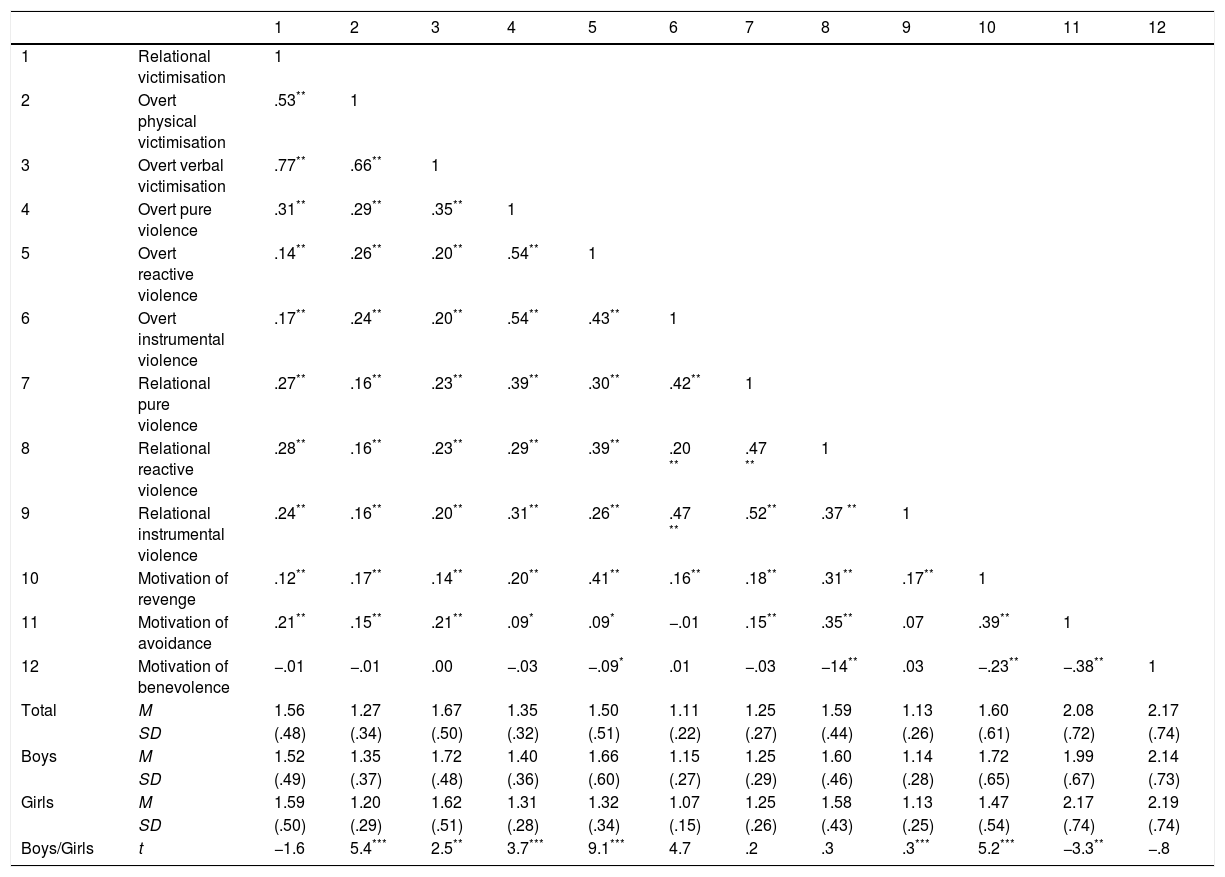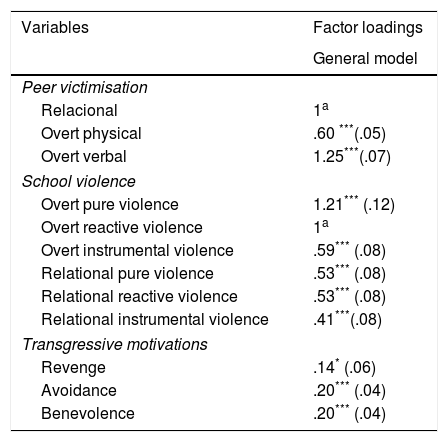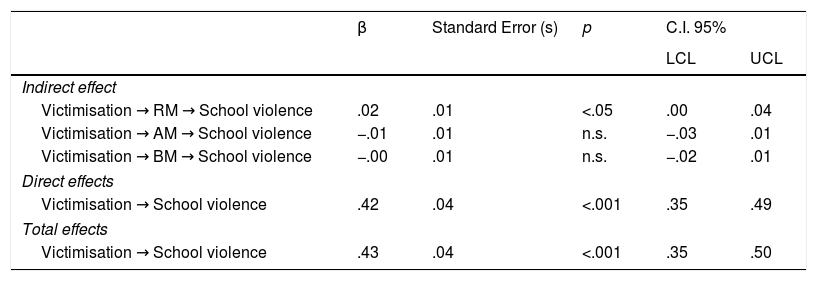The aim of the present study is to explore the relation among school victimisation and school violence, taking into account the motivations of revenge, avoidance, and benevolence. The sample includes 671 adolescents of both sexes, between 10 and 16 years old, attending primary and secondary school. The structural equation model, calculated with EQS software, show that victimisation is directly and indirectly related to school violence through revenge motivation. Victimisation is also related to avoidance and benevolence motivations, although these are not associated with school violence. Multigroup analysis indicates statistically significant differences between boys and girls in the relation between victimisation and benevolence. Finally, results and their implications are discussed in order to design interventions focused on aggressive victims.
El objetivo del presente estudio es explorar el vínculo entre la victimización escolar y la violencia escolar, teniendo en cuenta la motivación de venganza, la evitación y la benevolencia. La muestra está constituida por 671 adolescentes de ambos sexos de edades comprendidas entre 10 y 16años escolarizados en seis centros públicos de Educación Primaria y Secundaria. Se calcula un modelo de ecuaciones estructurales con el programa EQS. Los resultados muestran que la victimización se relaciona en sentido positivo con la violencia escolar de manera directa e indirecta, a través de la motivación de venganza. También, la victimización se relaciona con las motivaciones de evitación y benevolencia, aunque estas no se asocian con la violencia escolar. El análisis multigrupo indica diferencias estadísticamente significativas entre chicos y chicas en la relación entre victimización y benevolencia. Finalmente, se discuten los resultados y sus posibles implicaciones con el fin de diseñar intervenciones centradas en las víctimas-agresoras.










